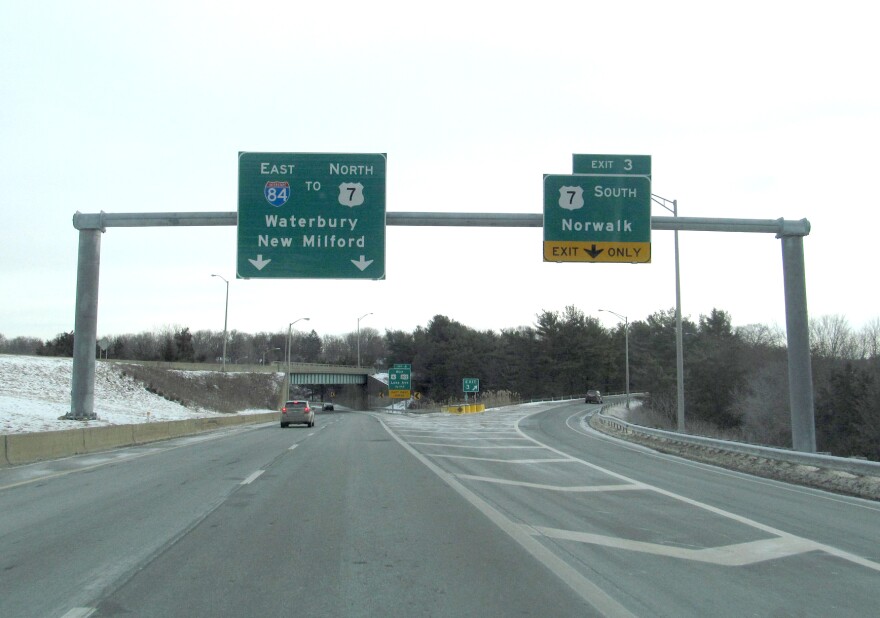"Congestion on our highways is adding 40 hours of wait time to every working man and woman."
Gov. Dannel Malloy
Governor Dannel Malloy is planning to widen highways in Connecticut as part of his 30-year transportation proposal.
While he called rail “extremely important” to his plan, Malloy said on WNPR’s Where We Live that rail solutions won’t solve the state’s highway troubles. He said he thinks those troubles are slowing down the state economy as well as highway traffic.
Malloy said I-84 and I-95 are where the problem needs to be fixed most urgently. “Both of those roadways most particularly [are] where we have the largest capacity issues that are restraining our growth as a state, particularly with respect to jobs,” he said.
“We know that congestion on our highways is adding 40 hours of wait time to every working man and woman,” Malloy said. “But if you talk about in the corridor, say, between New Haven or Bridgeport and Greenwich, you’re probably talking about 80 or 120 hours of congestion time. That’s three work weeks, if I’m right, at 120, and that’s an estimate. We know it’s 40 across the board.”
Malloy said that rail improvements are a priority, but that the state has lagged on improvements to highways. “Rail dollars will be spent largely first,” he said. “But let’s be honest: we have a capacity problem on our highways that we have largely ignored and refused to address.”
Three key highway changes Malloy has proposed include widening I-84 between Exits 3 and 8 in Danbury, and widening I-95 between Bridgeport and Greenwich as well as in the New London area.

"Trying to solve congestion by making roadways wider is like trying to solve obesity by buying bigger pants."
Charles Marohn
But some say spending on widening highways is the wrong investment for the state to make.
A caller on Where We Live said he thinks Metro-North improvements would be better than highway widening. “While I’m really glad to see that your plan would involve modernizing [the Metro-North New Haven] line, it also involves spending billions to widen I-95. From a personal standpoint, I would make use of that train nine times out of ten,” he said.
Charles Marohn, president of Strong Towns in Minneapolis, said on a previous episode of Where We Live about road design that we won’t solve congestion by making roadways wider. “Trying to solve congestion by making roadways wider is like trying to solve obesity by buying bigger pants,” he said. “You’re not really getting at the fundamental problem that’s going on.”
Host John Dankosky told Malloy during the show that highway widening often leads to more traffic congestion. “Every major organization who studies traffic congestion, urban planning, roadway building, says that by widening roadways, you create more congestion. More people get on the streets. Every single study that I’ve ever read -- and we’ve done an awful lot of stuff on this, governor -- says that’s the case.”
“That’s not true,” Malloy said. “That is not true, particularly when it is accompanied by a major build-out of other systems of transportation… The rail dollars will be spent first, but that’s not going to solve the fact that 84 goes from two lanes to three lanes, to two lanes to three lanes, to two lanes to three lanes, over its entirety. And that design defect adds congestion on that roadway,” which Malloy called an “accordion road.” His goal is to straighten the highway to make it consistent, not necessarily to add entirely new lanes along the length of the interstates.
It’s not yet clear how aspects of Malloy’s transportation plan would be paid for, whether it’s new tolls, or taxes, or cuts elsewhere in the budget. Malloy said it’s now in the hands of the state legislature.

